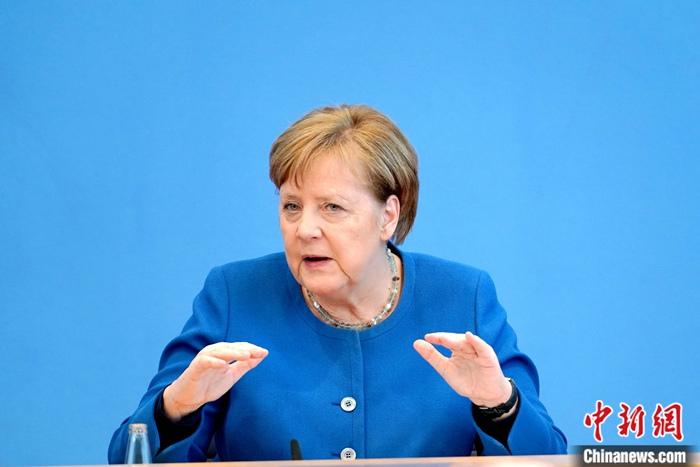(Fighting New Coronary Pneumonia) Merkel reiterated its opposition to the cancellation of patent protection for the new crown vaccine
China News Agency, Berlin, May 8 (Reporter Peng Dawei) German Chancellor Merkel once again stated on the 8th that he opposes the cancellation of patent protection for the new crown vaccine.
She said that she did not think that the cancellation of patent protection could solve the problem of vaccine supply. Patent protection just guaranteed the creativity and innovation capabilities of enterprises.
She also emphasized that the risks brought by the cancellation of the new crown vaccine patents outweigh the opportunities.
Data map: German Chancellor Merkel.
Photo by China News Agency reporter Peng Dawei
US Trade Representative Dai Qi recently stated that in response to the new crown epidemic, the US government supports the temporary exemption of intellectual property protection related to the new crown vaccine.
In response to this statement, a spokesperson for the German Federal Government expressed opposition on the 6th of this month and emphasized that intellectual property protection, as a source of innovation, must also be protected in the future.
Merkel reiterated the above-mentioned position of the German government at a press conference in Berlin on the 8th.
She said that Germany has participated in the Global Alliance for Vaccines and Immunization’s "New Coronary Pneumonia Vaccine Implementation Plan" (COVAX) and provided funding for this opportunity; Germany and the European Union will do everything they can to expand vaccine production and help get vaccines around the world.
"But for me, questioning the practice of patent protection does not help us get more and better vaccines."
Merkel emphasized that the current goal is to provide vaccines to as many people as possible as quickly as possible, but she believes that the removal of patent protection "risks greater than opportunities."
She said that the current problem is not that vaccine manufacturers "possess patents but are unwilling to produce". The essence of the problem is how to enable as many people as possible to produce patented vaccines without sacrificing the innovation capabilities of vaccine manufacturers, so as to ensure When the virus mutates, the manufacturer will not lose the ability to quickly launch a new version of the vaccine.
(Finish)

